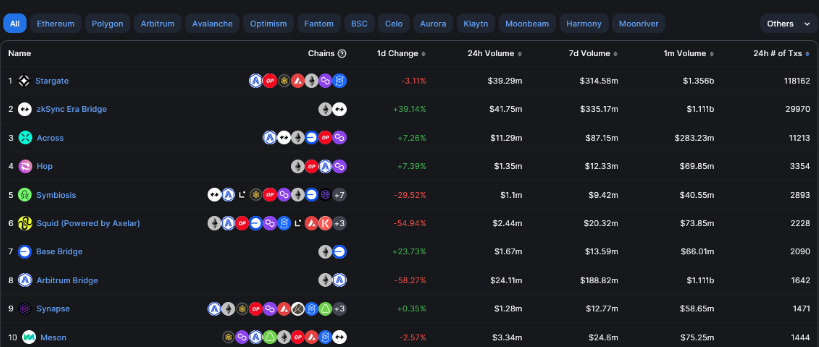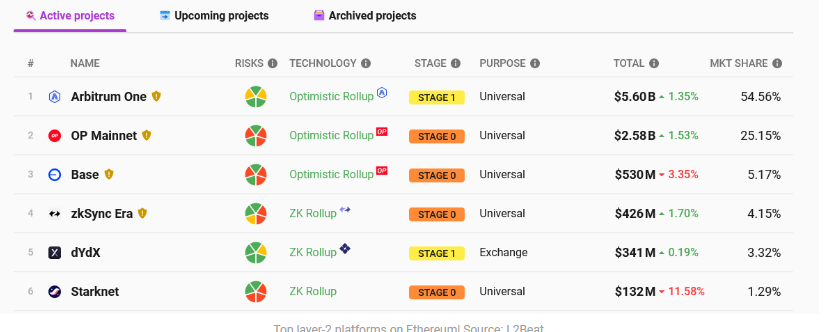Base, the layer-2 scaling solution supported by Coinbase, has been in the market for about six weeks. Looking at the transaction volume, the bridge is currently ranked seventh in terms of activity. Data from DeFiLlama on September 21 showed that the Ethereum-Base bridge processed 2090 transactions. This number stood out as it is higher than the Ethereum-Arbitrum and Polygon zkEVM bridges, which recorded 1,642 and 860 transactions, respectively.
Increase in Transactions on the Ethereum-Base Bridge
The increase in the number of transactions on the Ethereum-Base bridge is noteworthy compared to the transactions carried out by the zkSync Era bridge, which remains weak. The bridge, which is only connected to Ethereum, had processed 29,970 transactions, which is more than 14 times the number of transactions on the Ethereum to Base bridge.
When ranked by the number of transactions performed, the Stargate Bridge, which connects to multiple blockchains and layer-2 platforms including Solana, Polygon, Avalanche, and BNB Chain, ranks at the top of the list. At the time of writing, Stargate had processed over 118,000 transactions.

Base’s rise to prominence has attracted attention considering its launch timing and how it competes with other established layer-2 networks such as Arbitrum and OP Mainnet, formerly known as Optimism.
Ethereum continues to be the most popular smart contract platform and the second most valuable cryptocurrency after Bitcoin (BTC). However, it also struggles with fundamental layer scalability.
The platform can only process about 15 transactions per second (TPS) at its peak. Despite changes in the gas fee model, transaction fees continue to be the highest in the industry, forcing developers to seek solutions.
Arbitrum and OP Mainnet Leading the Way
Ethereum developers continue to propose various methods to scale the main network. Despite other solutions such as sharding, where the network is divided into “shards” that operate independently but are interconnected for security reasons, layer-2 solutions continue to attract attention.
When most platforms are examined, it can be seen that they work on creating solutions based on the rollup model, where transactions are routed off-chain before being settled on the main network. In addition to layer-2 options, Polygon has succeeded as a fully compatible side-chain with Ethereum.
Data from L2Beat, which tracks layer-2 solutions on behalf of Ethereum, reveals that Arbitrum and OP Mainnet are the most popular platforms for distributing protocols, including decentralized finance (DeFi).











